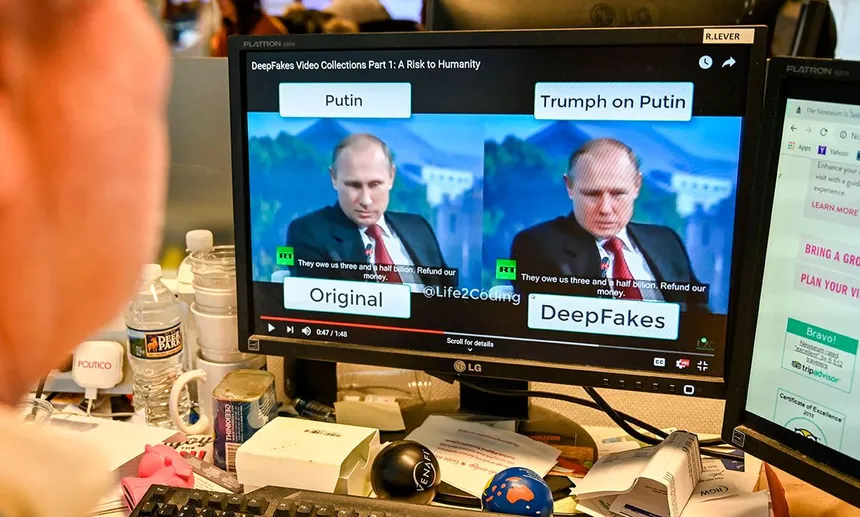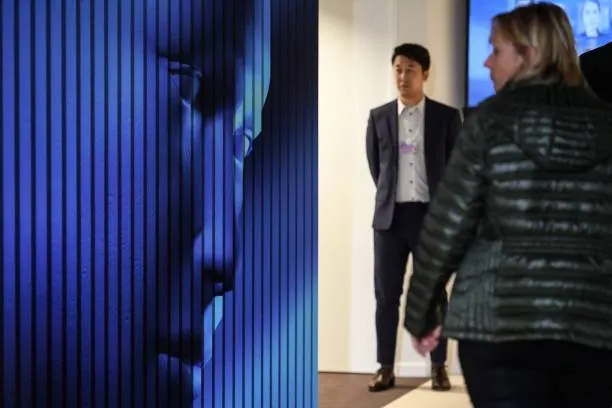The Deepfake Dilemma in Politics
With the 2026 midterm elections around the corner, a new controversy has emerged—deepfake political ads. These AI-generated videos, capable of mimicking real politicians, have sparked fears of voter manipulation and misinformation. While some argue these ads are a dangerous tool for deception, others defend them as part of free speech. But where should the line be drawn?

What Are Deepfake Political Ads?
Deep fake technology uses artificial intelligence to manipulate audio and video, making it appear as though someone said or did something they never actually did. In the political sphere, this technology is being used in two key ways:
- Attack Ads: Fake videos designed to damage an opponent’s reputation.
- Propaganda Ads: AI-generated clips making politicians appear to say things they never said, swaying public opinion unfairly.
How Deepfakes Are Impacting the 2026 Midterms
The rise of deep fake political ads has raised multiple concerns ahead of the elections:
- Misinformation Spread: False narratives can be created to mislead voters.
- Trust Issues: Voters may become skeptical of real videos, dismissing legitimate statements as fake.
- Election Integrity: Manipulated ads could tilt election results unfairly.
- Legal and Ethical Questions: Are there laws protecting voters from AI-driven deception?

Shocking Examples of Deep fake Ads in 2026
Several deepfake videos have already surfaced, causing uproar:
- A fake speech allegedly showing a senator endorsing an unpopular policy.
- A doctored debate clip making a candidate appear confused or incompetent.
- AI-generated endorsement ads with fabricated messages from past political figures.
The Political Response: Outrage and Divided Opinions
Politicians from both parties have responded differently to the deepfake crisis:
- Democrats argue for strict regulations to ban deepfake ads completely.
- Republicans warn against censorship, citing First Amendment concerns.
- Election commissions are scrambling to define guidelines before the voting begins.

Can Laws Stop the Deep fake Epidemic?
Currently, there are few legal protections against deepfake political ads. However, several measures are being considered:
- Federal Deepfake Ban: A proposed law to criminalize deceptive AI-generated ads.
- State Regulations: Some states have introduced laws requiring disclaimers on AI-generated political content.
- Social Media Crackdowns: Platforms like Facebook and YouTube are flagging and removing misleading deep fake content.
The Role of Social Media in Spreading Deepfakes
Social media has become the primary battlefield for deepfake political ads. Key concerns include:
- Algorithm Amplification: AI-generated content spreads rapidly due to engagement-driven algorithms.
- Difficult Detection: Even advanced detection tools struggle to differentiate real vs. fake videos.
- Platform Policies: Tech companies are under pressure to take a stronger stance against AI-driven misinformation.
How Voters Can Protect Themselves
To avoid being misled by deepfake political ads, voters should:
- Verify Sources: Always check if a video is coming from a credible news outlet.
- Use Fact-Checking Tools: Platforms like Snopes and PolitiFact help debunk false claims.
- Look for Inconsistencies: Poor lip-syncing, unnatural facial expressions, and robotic voices are signs of deep fakes.
- Stay Skeptical: If a video seems too shocking or unrealistic, it’s worth questioning its authenticity.

The Future of Deepfakes in Politics
As AI technology continues to evolve, deep fake political ads are expected to become even more realistic. Experts predict:
- Stronger Regulations: Governments may introduce harsher penalties for AI-generated election interference.
- Better Detection Tools: AI systems designed to detect deep fakes will improve.
- New Election Safeguards: Voting systems might incorporate anti-deepfake policies to ensure fair elections.
Conclusion: A Digital War for Truth
The controversy over deepfake political ads in the 2026 midterms is a wake-up call for voters, lawmakers, and tech companies. While AI-driven content has the potential to revolutionize communication, it also poses a serious threat to democracy. As the battle over truth vs. deception intensifies, the question remains—can we trust what we see and hear in the digital age?
Walmart Unveils AI-Powered Stores With No Checkout Lines – Here’s What It Means for Shoppers!






